
Enoch Arnold Bennett was an English author, best known as a novelist, who wrote prolifically. Between the 1890s and the 1930s he completed 34 novels, seven volumes of short stories, 13 plays, and a daily journal totalling more than a million words. He wrote articles and stories for more than 100 newspapers and periodicals, worked in and briefly ran the Ministry of Information during the First World War, and wrote for the cinema in the 1920s. Sales of his books were substantial, and he was the most financially successful British author of his day.

Dame Margaret Drabble, Lady Holroyd, is an English biographer, novelist and short story writer.

Soon I Will Be Invincible is a novel by Austin Grossman, published by Pantheon Books and released on June 5, 2007. The novel uses two alternating first person narratives—the first told from the point of view of Fatale, a female cyborg recruited by the superhero group The New Champions as they investigate the disappearance of a superhero named CoreFire. The other narrative is told from the point of view of Dr. Impossible, a supervillain possessing super-human strength and intellect who suffers from Malign Hypercognition Disorder. The plot follows Impossible's thirteenth attempt to take over the world after escaping from prison.
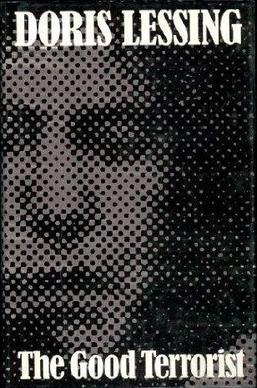
The Good Terrorist is a 1985 political novel written by the British novelist Doris Lessing. The book's protagonist is the naïve drifter Alice, who squats with a group of radicals in London and is drawn into their terrorist activities.

The Takeover is a novel by the Scottish author Muriel Spark. It was first published in 1976.

The Peppered Moth is a 2000 novel by English writer Margaret Drabble; it is her fourteenth published novel. The novel follows the fictional experiences of three generations of women within one family, and contains several elements that are loosely based on Drabble's own biographical experience.
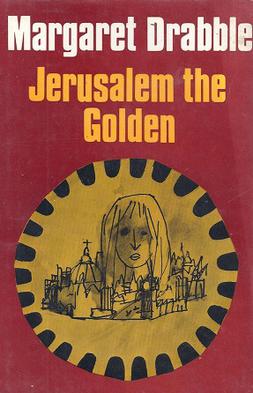
Jerusalem the Golden is a novel by Margaret Drabble published in 1967, and is a winner of the James Tait Black Memorial Prize in 1967.
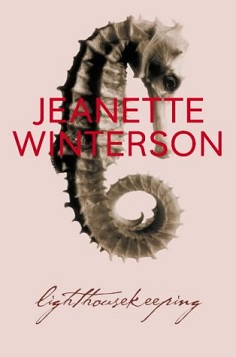
Lighthousekeeping is a 2004 novel by Jeanette Winterson. The novel depicts the perilous unbalanced psychology of the narrating character Silver, who becomes an apprentice to a lighthouse keeper. and follows in Winterson's typically mythological and metaphorical writing, exploring themes of storytelling, love and history.

The Witch of Exmoor is a 1996 novel by Margaret Drabble. The novel is a social novel, with a focus on exploring the state of post-Thatcher Britain through the Dickensian satire of the Palmer family. The title describes the satirical protagonist, Frieda Palmer, who provides the source of much of the social commentary.
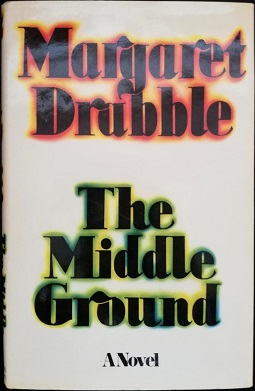
The Middle Ground is a 1980 novel by British novelist Margaret Drabble. It is her ninth published novel. The novel explores the "crisis of British urban life" through the eyes of a middle aged journalist, Kate Armstrong.

The Red Queen is a 2004 novel by British novelist Margaret Drabble. The novel describes the trip of a British academic on a trip to Seoul to give a paper at a conference. At the beginning of the novel, the academic, Dr. Babs Halliwell, reads the memoir of a 19th-century Korean princess.
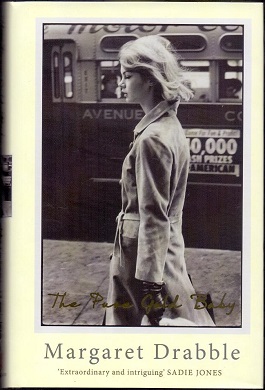
The Pure Gold Baby is British novelist Margaret Drabble's 18th novel, first published in 2013. The novel was her first novel to be published in seven years, following The Sea Lady. In 2009, Drabble had pledged not to write fiction again, for fear of "repeating herself."
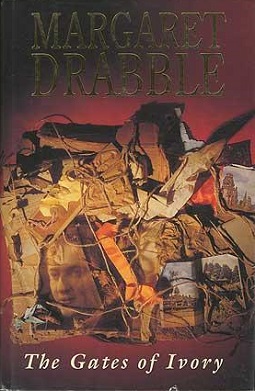
The Gates of Ivory is a 1991 novel by novelist Margaret Drabble. The novel is the third in a series of novels, following The Radiant Way and A Natural Curiosity. The novel continues the stories of several middle aged intellectuals introduced in the last two novels. The novel also introduces a new character, Stephen Cox who is loosely based on J.G. Farrell.

The Needle's Eye is a 1972 novel by British novelist Margaret Drabble. The novel was well received by reviewers, like contemporary novelist Joyce Carol Oates. Though it was her fifth novel, Drabble described it as her first time that she could "actually write a novel" expressing what she wanted to write.
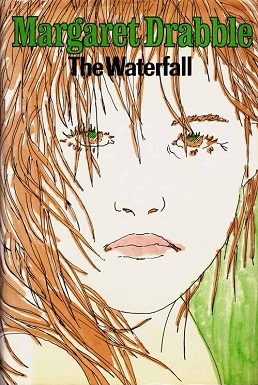
The Waterfall is a 1969 novel by British novelist Margaret Drabble. The novel is one of Drabble's more experimental narratives, starting as a third person narrative but quickly dominated by a first person protagonist Jane Gray, to guide the reader through her love affair and life.

The Realms of Gold is a 1975 novel by British novelist Margaret Drabble. The novel explores the mid-life experiences of anthropologist Frances Wingate and her affair with Karel Schmidt.
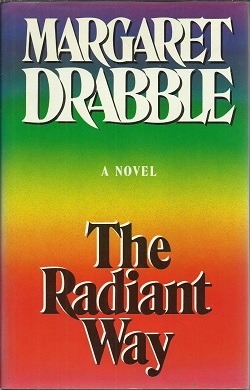
The Radiant Way is a 1987 novel by British novelist Margaret Drabble. The novel provides social commentary and critique of 1980s Britain, by exploring the lives of three Cambridge-educated women with careers as knowledge professionals.

The Seven Sisters is a 2002 novel by British novelist Margaret Drabble. The novel reflects on a mid-life crisis of an estranged Candida, when she moves to a rundown London apartment. The novel largely follows Candida's evasive and sometimes deceptive representation of events, including an epistolary section which is her "computer diary".
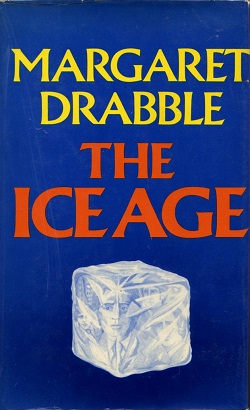
The Ice Age is a 1977 novel by British novelist Margaret Drabble. The novel follows the experiences of former BBC producer Anthony Keating as he experiences the ups and downs of life during the 1960s and 1970s. Depicting the property crisis in Britain during that period, novel diverges from her earlier psychological studies of individuals, focusing more on the "state of England".
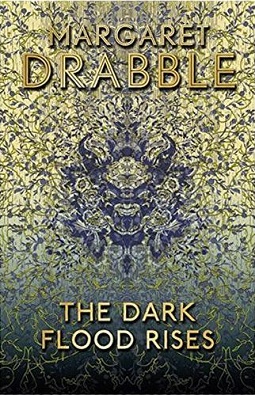
The Dark Flood Rises is the 19th novel of Margaret Drabble, and was first published in 2016.




















